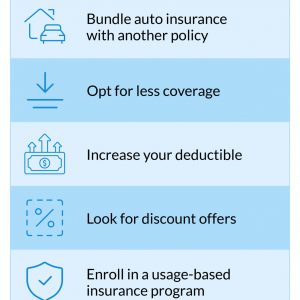“Maximize Your Profits with Strategic Tax Planning for Your Business”
Introduction
Tax planning is an important part of running a successful business. It involves understanding the tax laws and regulations that apply to your business, and taking steps to minimize your tax liability. Tax planning can help you save money, reduce your risk of an audit, and ensure that you are in compliance with the law. It is important to understand the different types of taxes that may apply to your business, and to develop a plan to minimize your tax burden. This guide will provide an overview of the basics of tax planning for businesses, including the different types of taxes, strategies for minimizing your tax liability, and resources for further information.
How to Use Tax Planning to Maximize Your Business Profits
Tax planning is an important part of running a successful business. By taking the time to plan ahead and understand the tax implications of your decisions, you can maximize your profits and minimize your tax burden. Here are some tips to help you use tax planning to maximize your business profits.
First, understand the tax laws that apply to your business. Knowing the rules and regulations that govern your business will help you make informed decisions about how to structure your business and how to manage your finances. This will also help you identify potential tax savings opportunities.
Second, create a tax plan. A tax plan should include strategies for reducing your taxable income, such as taking advantage of deductions and credits. It should also include strategies for deferring income and minimizing your tax liability.
Third, take advantage of tax-advantaged investments. Investing in certain types of investments, such as retirement accounts, can help you reduce your taxable income and maximize your profits.
Fourth, consider tax-efficient business structures. Different business structures have different tax implications. For example, a sole proprietorship is taxed differently than a corporation. Understanding the tax implications of different business structures can help you choose the structure that is most beneficial for your business.
Finally, stay up to date on changes in the tax laws. Tax laws are constantly changing, so it is important to stay informed about any changes that may affect your business. This will help you make sure that you are taking advantage of all available tax savings opportunities.
By taking the time to understand the tax laws that apply to your business and creating a tax plan, you can use tax planning to maximize your business profits.
Exploring the Benefits of Tax Planning for Small Businesses
Tax planning is an important part of running a successful small business. It involves taking advantage of available tax deductions and credits to reduce the amount of taxes owed. By taking the time to plan ahead, small business owners can save money and maximize their profits.
Tax planning involves understanding the tax laws and regulations that apply to your business. It also involves understanding the different types of deductions and credits available to small businesses. By taking the time to research and understand the tax laws, small business owners can identify deductions and credits that can help reduce their tax liability.
Tax planning can also help small business owners save money by reducing their taxable income. By taking advantage of deductions and credits, small business owners can reduce their taxable income and pay less in taxes. This can help them keep more of their profits and reinvest them back into their business.
Tax planning can also help small business owners plan for the future. By understanding the tax laws and regulations, small business owners can plan for future tax liabilities and make sure they are prepared for any changes in the tax code. This can help them avoid any surprises when it comes time to file their taxes.
Finally, tax planning can help small business owners stay organized. By understanding the tax laws and regulations, small business owners can keep track of their deductions and credits and make sure they are taking advantage of all available tax savings. This can help them stay organized and ensure they are taking full advantage of all available tax savings.
Tax planning is an important part of running a successful small business. By taking the time to understand the tax laws and regulations, small business owners can save money and maximize their profits. They can also plan for the future and stay organized. By taking advantage of available deductions and credits, small business owners can reduce their taxable income and pay less in taxes.
Strategies for Minimizing Your Business Tax Liability
1. Utilize Tax Deductions: Businesses can take advantage of various tax deductions to reduce their taxable income. Common deductions include business expenses, such as office supplies, travel expenses, and employee benefits.
2. Take Advantage of Tax Credits: Tax credits are a great way to reduce your business’s tax liability. Tax credits are available for a variety of activities, such as hiring employees from certain disadvantaged groups, investing in research and development, and providing health insurance to employees.
3. Utilize Retirement Plans: Retirement plans, such as 401(k)s and IRAs, can help reduce your business’s taxable income. Contributions to these plans are tax-deductible, and the money in the accounts grows tax-free until it is withdrawn.
4. Structure Your Business as an S-Corporation: An S-Corporation is a type of business structure that allows the business’s income to be taxed at the individual level, rather than the corporate level. This can result in significant tax savings.
5. Take Advantage of Tax-Free Investments: Certain investments, such as municipal bonds, are exempt from federal income tax. Investing in these types of investments can help reduce your business’s taxable income.
6. Utilize Tax-Deferred Accounts: Tax-deferred accounts, such as annuities and deferred compensation plans, allow you to defer taxes on income until it is withdrawn. This can help reduce your business’s current tax liability.
7. Utilize Tax-Free Exchanges: Tax-free exchanges, such as 1031 exchanges, allow you to defer taxes on the sale of certain assets. This can help reduce your business’s current tax liability.
By taking advantage of these strategies, businesses can minimize their tax liability and maximize their profits.
Understanding the Impact of Tax Reform on Business Tax Planning
Tax reform has had a significant impact on business tax planning. The Tax Cuts and Jobs Act of 2017 (TCJA) was the most sweeping tax reform in decades, and it has changed the way businesses approach their tax planning.
The TCJA lowered the corporate tax rate from 35% to 21%, which has had a major impact on businesses. This lower rate has allowed businesses to keep more of their profits, which can be used to invest in new projects or hire additional staff. Additionally, the TCJA has made it easier for businesses to deduct certain expenses, such as research and development costs, which can help them save money on their taxes.
The TCJA also changed the way businesses can deduct interest expenses. Under the new law, businesses can only deduct up to 30% of their adjusted taxable income for interest expenses. This means that businesses must be more strategic in how they use debt to finance their operations.
The TCJA also changed the way businesses can deduct certain types of losses. Under the new law, businesses can only deduct up to 80% of their net operating losses. This means that businesses must be more careful in how they manage their losses in order to maximize their deductions.
Finally, the TCJA changed the way businesses can deduct certain types of taxes. Under the new law, businesses can only deduct up to $10,000 in state and local taxes. This means that businesses must be more strategic in how they manage their taxes in order to maximize their deductions.
Overall, the TCJA has had a major impact on business tax planning. Businesses must now be more strategic in how they manage their taxes in order to maximize their deductions and minimize their tax liability. By understanding the changes brought about by the TCJA, businesses can ensure that they are taking full advantage of the new tax laws.
Tips for Developing an Effective Tax Planning Strategy for Your Business
1. Understand Your Business: Before you can develop an effective tax planning strategy, you must have a thorough understanding of your business. Take the time to review your financial statements, analyze your expenses, and understand your income sources. This will help you identify areas where you can reduce your tax liability.
2. Research Tax Laws: Tax laws are constantly changing, so it is important to stay up to date on the latest changes. Research the current tax laws and regulations that apply to your business to ensure that you are taking advantage of all available deductions and credits.
3. Utilize Tax Planning Software: Tax planning software can help you identify potential deductions and credits that you may be eligible for. It can also help you estimate your tax liability and create a plan to reduce it.
4. Create a Tax Calendar: Develop a tax calendar to ensure that you are meeting all of your filing deadlines. This will help you avoid costly penalties and interest charges.
5. Take Advantage of Tax Credits: Research the various tax credits that are available to your business. These credits can help reduce your tax liability and save you money.
6. Consider Tax-Advantaged Investments: Investing in tax-advantaged investments can help you reduce your tax liability. Consider investing in retirement accounts, such as a 401(k) or IRA, or in other tax-advantaged investments, such as municipal bonds.
7. Hire a Professional: If you are unsure of how to develop an effective tax planning strategy, consider hiring a professional. A tax professional can help you identify deductions and credits that you may be eligible for and create a plan to reduce your tax liability.
Conclusion
Tax planning is an important part of running a successful business. It can help businesses save money, reduce their tax burden, and ensure compliance with the law. By taking the time to understand the tax laws and regulations, businesses can make informed decisions about their tax strategies and ensure that they are taking advantage of all available deductions and credits. With careful planning, businesses can maximize their profits and minimize their tax liabilities.





